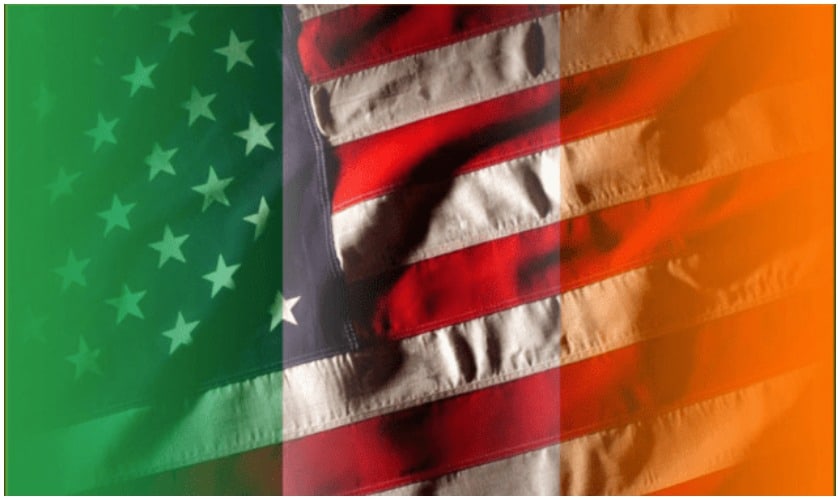There is no question that Irish ancestry runs deep all across the United States. When we hear last names such as Murphy and O’Connor, we are in fact acknowledging the great migration of Irish families who mostly settled in the New England region from about 1820 until about a decade following the end of World War I. We are talking about more than four million people who became Irish-Americans, and whose contribution to the greatness of the U.S. has been significant.

Approximately 20% of the American population has some claim to Irish ancestry, which explains why quite a few Irish family names are so common, like this Irish name, which no longer sounds Gaelic because it has been heavily anglicized over more than two centuries. Murphy is another example; it comes from “murchadha,” which for English speakers is not easy to pronounce, and which roughly translates into “warrior of the seas.”
Let’s look at some other popular Irish-American names and how their Gaelic roots became anglicized:
* O’Brien: The O’ suffix in Gaelic names means “of the clan.” In the case of O’Brien, it refers to the Brian Boru royal dynasty. King Brian Boru ruled during a time of political unification in the 9th century, and his descendants automatically assumed control of counties in southern Ireland. In ancient Gaelic, this name referred to a high hill.
* Costello: Here we have a very interesting Irish name because it combines Gaelic with Latin, and it is proof that Roman legions not only landed in Hibernia but also established settlements for some time. We know that Hibernia was not part of the Roman Empire because there is no record of it ever being conquered; however, we should not discard the cultural legacy left by the settlements. The Costello surname comes from Mac Oisdealbhaigh, and it is not originally Gaelic but Norman, and it has Latin roots from words that described ornate castles.
* Kennedy: The American political dynasty that gave the U.S. its first Roman Catholic president came from County Wexford. The Gaelic version of this surname is Ceannéidigh, and it is associated with a royal family that ruled County Tipperary during the Middle Ages.
* Kelly: This surname is often assumed to come from Scottish culture, but that is not the case. The Ó Ceallaigh clan was quite powerful in the western regions of Ireland in the 7th century. This is an example of many Irish family names that have lost the O’ prefix over the ages. The Scottish confusion is related to Kelly being a popular female name in that part of the United Kingdom, but it has a different origin.
* Doyle: Here is an example of a last name that is highly representative of Irish culture. The Ó Dubhghaill clan took its name from dubhghoill, a Gaelic word that was once used to describe the Norse warriors that invaded Hibernia during the Viking Age. The word gauls was previously used to describe anyone who was not born in Hibernia, and it may have been used in a derogatory manner; over time, however, the word received prefixes and suffixes to make it more specific when referring to foreigners.


